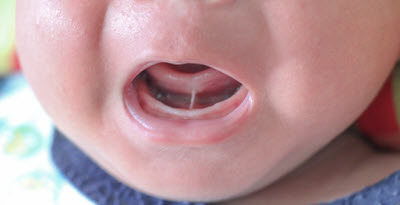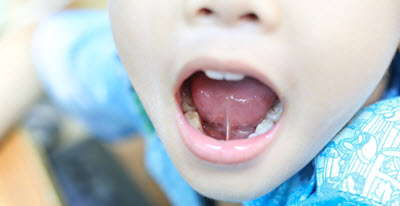 The confusion about tongue-tie is real.
The confusion about tongue-tie is real.
These days, tongue-tie diagnosis and treatment are hot topics. You are likely to get a different answer from each lactation consultant, pediatrician, ear nose and throat doctor, dentist, and speech therapist you talk to. Does being tongue-tied really cause speech and feeding problems? Yes! But not always.
Here’s the thing: everyone is different.
What might be a problem for one person might not be a problem for another. But if tongue-tie is a problem for you or your child, it can be like trying to run a race with your shoelaces tied together!
 Is tongue tie a problem for you or your child?
Is tongue tie a problem for you or your child?
We can provide an in-depth, structural, and functional assessment that can help you understand whether you or your child has a tongue-tie that is adversely affecting speech and feeding. We’ll look closely at range of motion, oral motor abilities, eating, swallowing, and speech.
 If tongue-tie isn’t the problem, we’ll let you know.
If tongue-tie isn’t the problem, we’ll let you know.
If it’s a factor, we’ll refer you to the right professional to determine the best procedure.
After any recommended procedure, we’ll guide you before and after surgery to ensure the best possible outcomes.
 What is tongue thrust anyway?
What is tongue thrust anyway?
Why does my dentist or orthodontist say that I have it? Why does it matter?
Sometimes tongue thrust is obvious and can have frustrating results, such as an open bite, orthodontic treatment that didn’t last, or messy eating. At other times, it is a bit more subtle.
Sometimes called “reverse swallow” or “immature swallow,” tongue thrust occurs when your tongue moves forward against your teeth during swallowing or speaking. In contrast, a correct swallow is characterized by an upward and backward tongue wave along your palate.
 When is tongue thrust a problem?
When is tongue thrust a problem?
Tongue thrust is not always overtly visible. If you are able to safely eat a variety of foods, swallow pills, and don’t have any dental problems, then you probably don’t need tongue thrust therapy.
However, if you are seeking orthodontic treatment and your orthodontist discovers a tongue thrust, it is imperative that you receive treatment to prevent orthodontic relapse in the future.
No one wants to pay for braces at all – much less pay for them twice.
Additionally, if you are a messy eater, have difficulty swallowing pills or eating foods with different textures, tongue thrust may be factor.
Don’t stay frustrated! Therapy can help.
For more information on tongue-tie and tongue thrust, please visit our Contact page.

